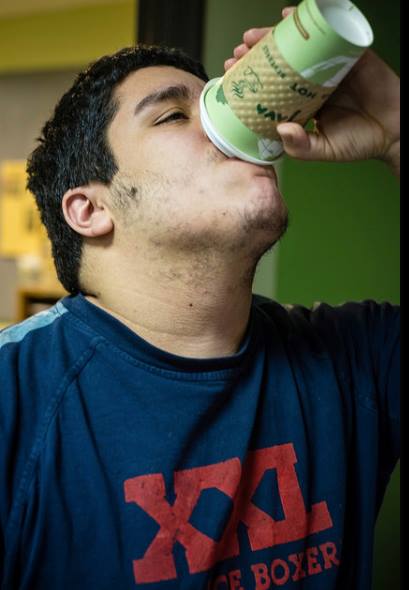You’re a fiction editor for Barrelhouse. How has your editorial work for Barrelhouse informed your own writing?
There’s a reason that “read for a literary magazine” is such a common piece of advice for young writers. You quickly learn what works and doesn’t work for you as a writer and a reader, and over time you’re able to spot those soft areas in your own prose, those moments that make you cringe, maybe grimace, and think, Hmm, how can I make this better? But what’s so great about the submissions we get at Barrelhouse is how expansive they are across genre, style, even structure; I’m awed by the concepts behind so many of the stories we receive. Also, I think I’m developing a better eye for how fiction can be funny on the page (even if this hasn’t directly translated to my own work…yet!). If anything, I’m slowly learning how to push myself and the types of stories I write. I never pretend to know what the hell I’m doing when I sit down to write a story, but I think since working with Barrelhouse I’m no longer afraid of that feeling—if things are going to get weird, I’m more likely now to follow that thread and see what kind of magic may (or may not) happen.
You write both fiction and nonfiction. Can you talk about how you move between these two genres and how your process for each differs?
For a short time I wrote these reviews of novels and stories written by Latinx authors that were a hybrid of personal essay and reviewing the material, but it was way more the former and hardly the latter. Still, I enjoyed writing them as a way to figure out why the books I was drawn to resonated with me. I think, though, that’s an experience best left to my internal monologue and maybe conversations with friends, preferably over a drink so they can drown out my babbling. At least for right now I manage to write maybe one nonfiction piece a year and it’s usually a flash essay. I write these when there is a call for submissions based on a theme or specific prompt, something that gets me to reflect. That’s where the process begins. I’m not all that interested in recreating scenes from memory or replicating dialogue—which I do in fiction—partly because I do not trust myself to get it “right” and I’d rather skip past that and get down to the emotional core of whatever moment I’m drawing from in my life. But, again, I have absolutely no idea what I’m doing.
Fiction, that’s where my mind lives. My brain is overwhelmed by imagining a thousand hypothetical scenarios involving every person I’ve ever met. (And the ones I’ve never met but know via extensive anecdotes and debriefings from close friends.) When I sit down to write a story, I do know that’s what I’m trying to do. So, I never sit down to write an essay that blends into fiction, or even vice versa. Sometimes I do borrow from my own experiences, but the difference between a story and a flash essay I might write is that I’m asking myself “What if?” and “How would?” and “What could have?”, which are all questions that I couldn’t answer any other way than to exaggerate, embellish, observe through a speculative lens, or do any of the other wonderful things fiction affords us as writers.
What do you think is essential for great flash fiction?
Momentum. I want a flash story to suck me in from line one then spit me out 50, 500, or a 1000 words later. I guess that sounds violent, but I think my favorite flashes offer a dizzying reading experience. I’m trash for that. It’s also important to have a strong foundation, which I think comes down to voice a lot of the time, but might also be woven into the structure, the legs of the whole thing.
What kind of story would you love to see in the queue this week?
I’d love to read something that makes me laugh. The snorting kind. There are a number of ways to do that, so I’m excited to see what comes through the queue.


 The core workshop of SmokeLong Fitness is all in writing, so you can take part from anywhere at anytime. We are excited about creating a supportive, consistent and structured environment for flash writers to work on their craft in a community. We are thrilled and proud to say that our workshop participants have won, placed, or been listed in every major flash competition. Community works.
The core workshop of SmokeLong Fitness is all in writing, so you can take part from anywhere at anytime. We are excited about creating a supportive, consistent and structured environment for flash writers to work on their craft in a community. We are thrilled and proud to say that our workshop participants have won, placed, or been listed in every major flash competition. Community works.